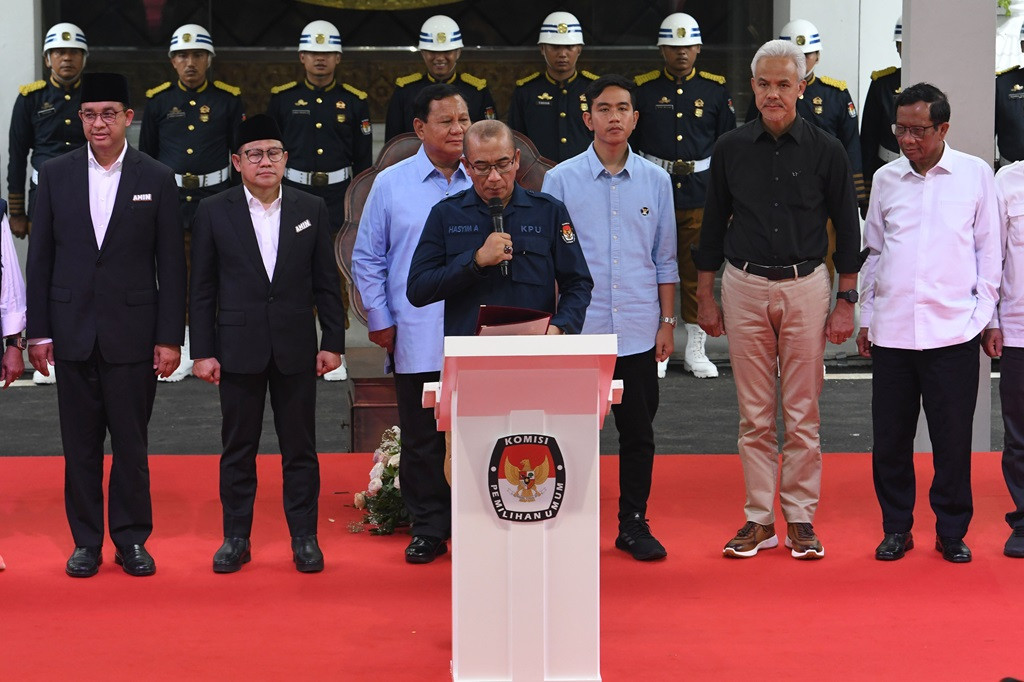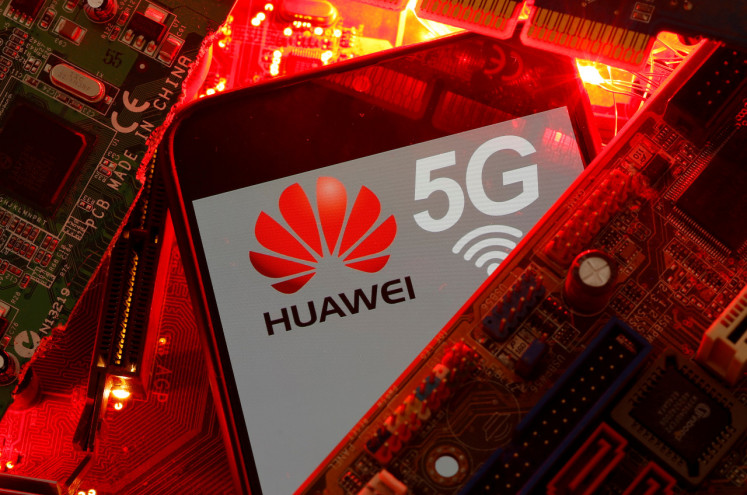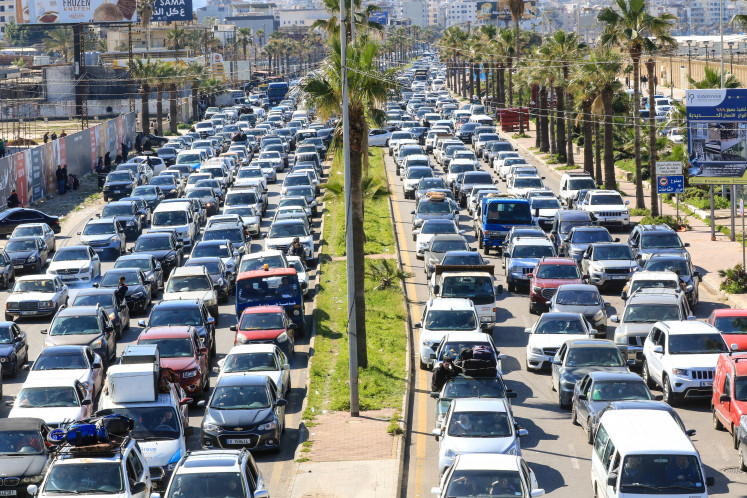Popular Reads
Top Results
Can't find what you're looking for?
View all search resultsPopular Reads
Top Results
Can't find what you're looking for?
View all search resultsSafeguarding the elections
We can no longer take for granted that we will have another successful election that is free, open and, more importantly, peaceful.
Change text size
Gift Premium Articles
to Anyone
 General Elections Commission (KPU) head Hasyim Asy'ari (center) reads the Peaceful 2024 Election Campaign Declaration at the commission's headquarters in Jakarta on Nov. 27, 2023, as the three 2024 presidential and vice presidential candidate pairs look on. The declaration, signed by the six candidates as well as representatives of the 18 political parties participating in the 2024 election, calls for a safe, peaceful, orderly and ethical election. It also calls for one free of hoaxes, vote buying and sectarian identity politics. (Antara/Aditya Pradana Putra)
General Elections Commission (KPU) head Hasyim Asy'ari (center) reads the Peaceful 2024 Election Campaign Declaration at the commission's headquarters in Jakarta on Nov. 27, 2023, as the three 2024 presidential and vice presidential candidate pairs look on. The declaration, signed by the six candidates as well as representatives of the 18 political parties participating in the 2024 election, calls for a safe, peaceful, orderly and ethical election. It also calls for one free of hoaxes, vote buying and sectarian identity politics. (Antara/Aditya Pradana Putra)

Foreign observers have consistently considered our elections as relatively peaceful, a feat that has earned us global praise for our democratic resilience. This is because, apart from the deadly post-election violence in 2019, no major incidents of violence have taken place during campaign periods and on election days in the last 20 years.
This is perhaps a low bar to pass for a country to qualify as a functioning democracy, but we take pride in having survived four elections smoothly. Following the downfall of Soeharto, we have always had a peaceful transfer of power without any destabilizing incidents.
To put things in perspective, in Thailand, protracted political conflicts have led to at least two military coups since 2006. In the Philippines, election violence is so common that only recently three people were killed in the southern part of the country, which is slated to hold local elections in 42,000 villages in the coming days.
This is certainly not the time to be complacent. We now realize how fragile our democracy is, with allegations of election rigging becoming more serious than ever after President Joko “Jokowi” Widodo openly said that he intended to interfere in the election and by allowing his son, Gibran Rakabuming Raka, to contest the 2024 presidential election. It is clear that we can no longer take for granted that we will, again, have another successful election that is free, open and, more importantly, peaceful.
It is true that Indonesian voters may no longer be as polarized as they were in the last two elections. But this does not mean that the current election campaign season is less prone to violent social conflicts. The question of the President’s neutrality and the growing concern of the potential mobilization of the state apparatuses to tip the balance for a certain pair of presidential and vice-presidential candidates should be taken as an indication of a potential source of election-related social conflicts.
With the campaign season officially kicking off on Tuesday, we are hoping that all stakeholders, including voters, are committed to ensuring that the election goes as peacefully as possible. The campaign period will last for less than three months, with the election scheduled for Feb. 14, 2024, when voters are expected to vote for the next president, vice president, lawmakers and councilors.

The three candidate pairs – Anies Baswedan-Muhaimin Iskandar, Prabowo Subianto-Gibran and Ganjar Pranowo-Mahfud MD – have vowed to keep the election clean. Moreover, on many occasions, they have even agreed to make the elections more “fun” and less tense than before. But we know that political gimmicks alone will not help us mitigate the risks of election violence.
The Elections Supervisory Agency (Bawaslu) has classified Jakarta as the nation’s most vulnerable province during the electoral contestations, citing a greater risk of vote buying or campaigns that are marred by hate speech or identity politics. The National Police claimed to have their own data on the conflict-prone regions, and that they were set to deploy more than 260,000 personnel nationwide to safeguard the polls.
The poll organizers and the law enforcers, however, can only work effectively if other stakeholders, particularly the political elites behind the election contenders, are truly committed to keeping the election peaceful. It is no secret that political elites were complicit in the many cases of popular mobilization to engage in political violence.
There is also the risk of digital technology, as a result of its cooptation by the political elite, playing a role in polarizing the people and inciting them to commit offline violence. It happened in the past elections; it could recur now.
There is too much at stake in this election, and we have repeatedly called on the state apparatus to work professionally for the sake of the nation. But at the end of the day, we the people also bear the responsibility to safeguard the elections.









